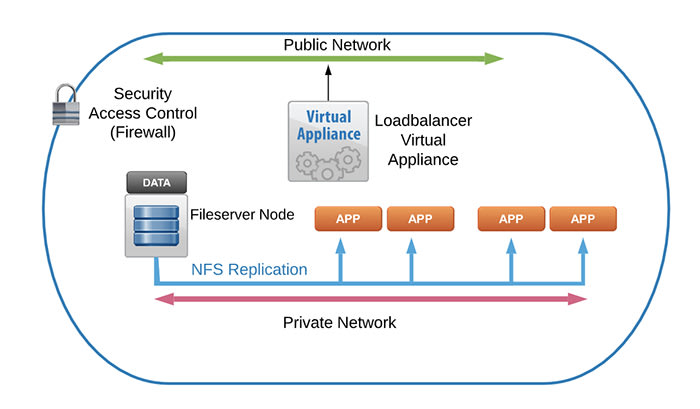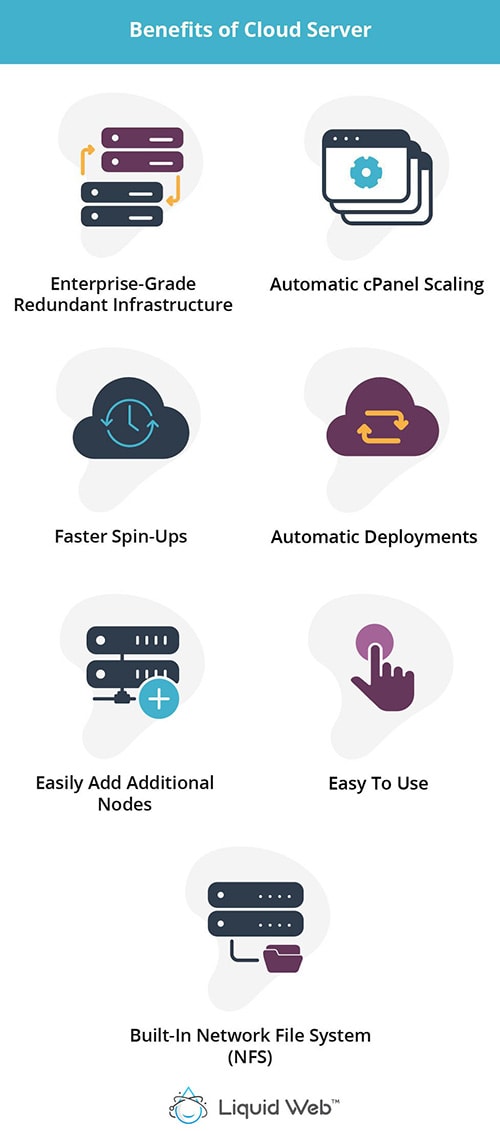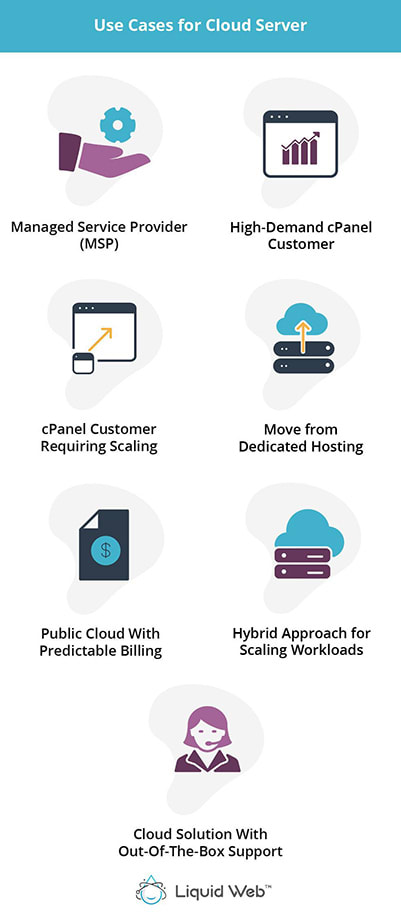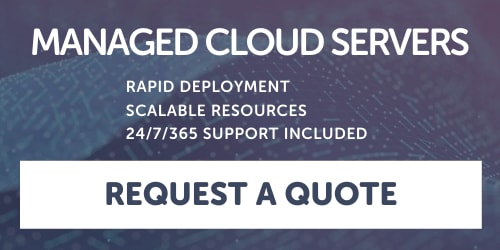What is Cloud Server?
Wondering what a Cloud Server is, or interested in how Cloud Servers work?
Earlier this month, we announced the launch of Cloud Servers. The public cloud computing global market was set to exceed $330 billion in 2020, according to Hosting Tribunal.
Many growing managed service providers (MSPs) and emerging enterprises are seeking the benefits that public cloud poses, while not breaking the bank or losing the support they require.
For customers requiring more uptime, faster deployments, easy-to-scale resources, and 24/7/365 support, Cloud Server is the perfect solution.
But what is a Cloud Server and how does it work?
What is Cloud Server?
Cloud Server is a high availability and redundant multi-tenant enterprise Cloud solution for cPanel Hosting. Cloud Servers are built for customers that want to move to the cloud for easy deployment, scalability, and reduced spend.
Cloud Servers allows us to offer you packaged clusters of workload specific virtual machines, which creates a resilient, easy-to-use, and fully managed cloud experience.
What is the Cloud? How Does Cloud Hosting Work?
Cloud computing is the delivery of on-demand computing services via a virtualized server. Instead of deploying workloads to a dedicated server in a traditional data center, you deploy a virtual server, or a cloud computing server, inside a virtual data center where the hardware takes a back seat to deployable resources.
Making deployment and changes to the cloud computing server environment is easier, quicker, and has less expense.
Why Choose Cloud Server?
If you are seeking multiple VMs or an out-of-the-box solution that can host your website, you will find Cloud Servers meet your needs. Those seeking alternative solutions with larger cloud providers such as AWS, Google Cloud, or Azure will find the tools they need, but not the support or expertise included to implement their workloads effectively. Alternatively, sticker shock also hits when receiving your first bill from hosting providers that charge on a pay-as-you-go methodology.
You will also find Cloud Servers deploy within minutes using OpenStack technology. This allows projects to be spun up when needed, and configured in hours, not days or weeks.
This also saves time and money with administrators, while reducing development time.
Services become easier and more cost effective as well.
With Cloud Servers, we have integrated Firewall-as-a-Service along with integrated Load Balancing.

How Do Cloud Servers Work?
Cloud Servers scale to meet your website, web application, or Managed Service Product needs.
Cloud Servers work to achieve this with a base cluster consisting of a primary file server and a load balancer virtual appliance. The file server is the primary data store where your database is housed. You can then add additional ephemeral web nodes to your solution as needed.
This configuration is a website-in-a-box that you configure and scale to meet your needs.
Think of Cloud Servers as “resources, not hardware.”

What are the Benefits of Cloud Server?
You can expect the following benefits by moving to Cloud Server:
- Our Cloud Server environment is enterprise-grade redundant at every level; from power to the networking, all the way to the enterprise-class Dell blade servers. This ensures consistency and fault tolerance across the entire cloud.
- Our engineering team has built the first scalable cPanel cloud solution, allowing you to scale your cPanel websites easily with no manual intervention.
- Clusters spin up in 30 minutes or less, and resource upgrades take around 10 minutes.
- No one has to build your server, wire it, or rack it. Deployment work is done automatically with Cloud Servers using OpenStack technology.
- As your user base grows Cloud Servers grows with you, allowing you to add as many web nodes as you need on-demand. This is extremely critical for websites that generate revenue from high traffic seasons such as the upcoming holiday season, which is expected to be the biggest eCommerce holiday season ever witnessed.
- The solution is quick and easy to use.
- Cloud Servers also feature a built-in network file system (NFS) to get your files to your web nodes easily and automatically.

What are the Use Cases for Cloud Server?
You will find Cloud Servers a great fit if you are a:
- Managed Service Provider (MSP) that needs a cost-effective, stable solution you can deploy quickly.
- cPanel customer that has high demand, or periodic events that drive customer demand and website visits.
- cPanel customer with a growing business looking for an easily scalable solution.
- Looking to move from dedicated hosting.
- Public Cloud client with another host looking for reliable monthly expenses you don’t get with usage-based clouds.
- Dedicated Server customers that need a hybrid approach for scaling workloads.
- Looking for a cloud solution that includes support out-of-the-box, unlike the large public cloud providers.
Get Started With Cloud Servers
Cloud Servers are the first truly scalable cPanel Hosting solution and include 24/7/365 Support, predictable billing, 10 Gb public/private network, and more. Find out more about Cloud Servers today.

Duncan Garcia
Duncan has over 15 years of experience in the Internet Hosting Industry, including stints at Rackspace and Peer 1 Hosting. Duncan formerly led Dedicated and VMware Private Cloud product lines at Liquid Web. Duncan calls San Antonio, Texas home where he lives with his family.
Keep up to date with the latest Hosting news.





